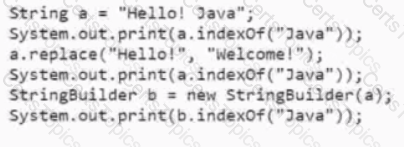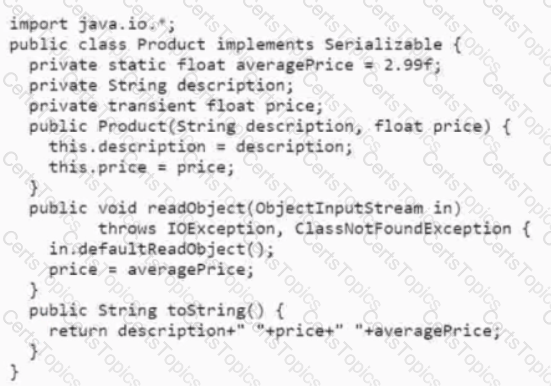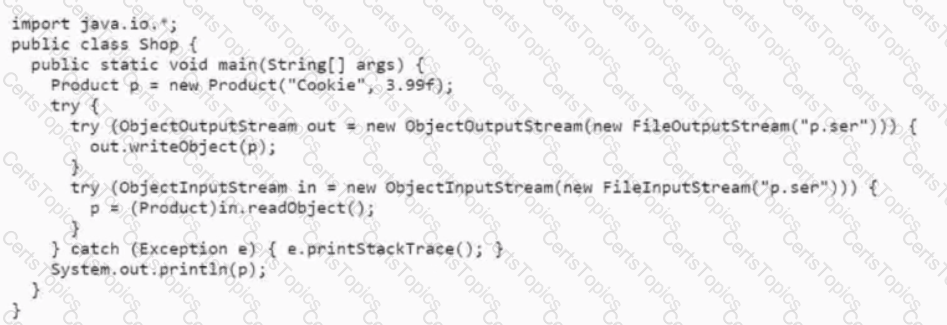Oracle Related Exams
1z0-829 Exam







Given the code fragment:

What is the result?
Given the product class:

And the shop class:

What is the result?